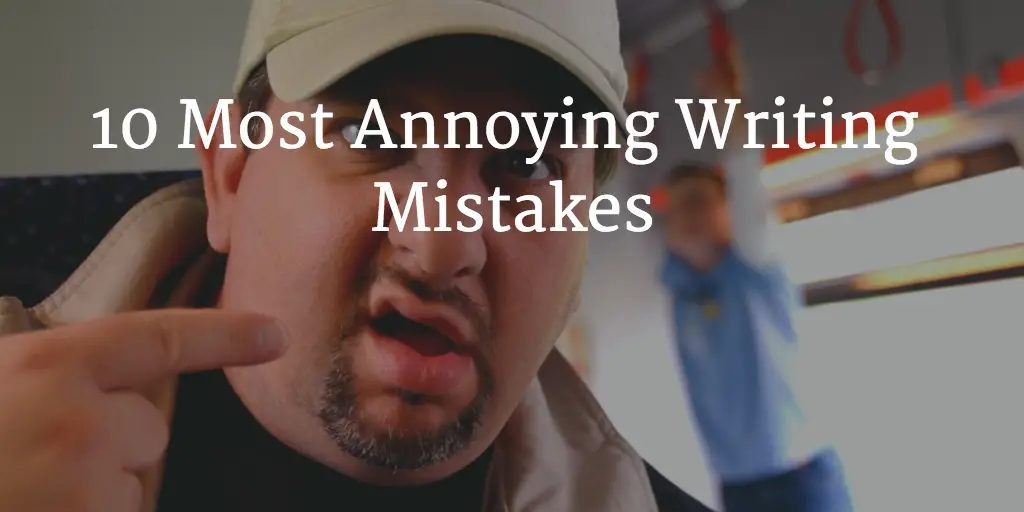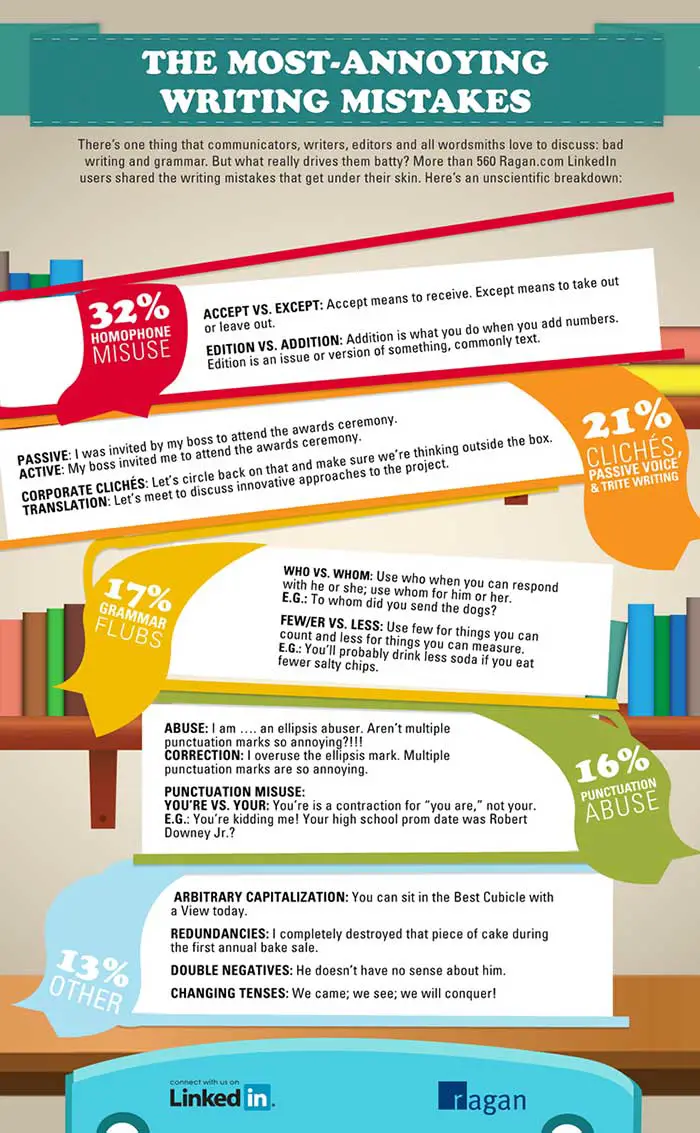How do you annoy a writer?
The list is to long too fit hear.
I do have an infographic for you that isn’t too long. It lists down 10 of the most annoying writing mistakes – according to Lawrence Ragan Communications. The group conducted a survey with LinkedIn users as the respondents. Whether that’s a good measure of “most annoying writing mistakes” or not is up for debate in points.
However, as you may already know, I am quite flexible in some cases. For example, many (most?) experts say that using the passive voice is bad. I believe that it is not always the case.
There are some really annoying writing mistakes in the infographic, though – so annoying they actually made me laugh.
Anyway, take a look, and let me know what you think about the list.
My question is this: what would the list include if we ask FWJ readers? Are you up for another poll?
P.S. Do you spot something off in the infographic?



Leave a Reply